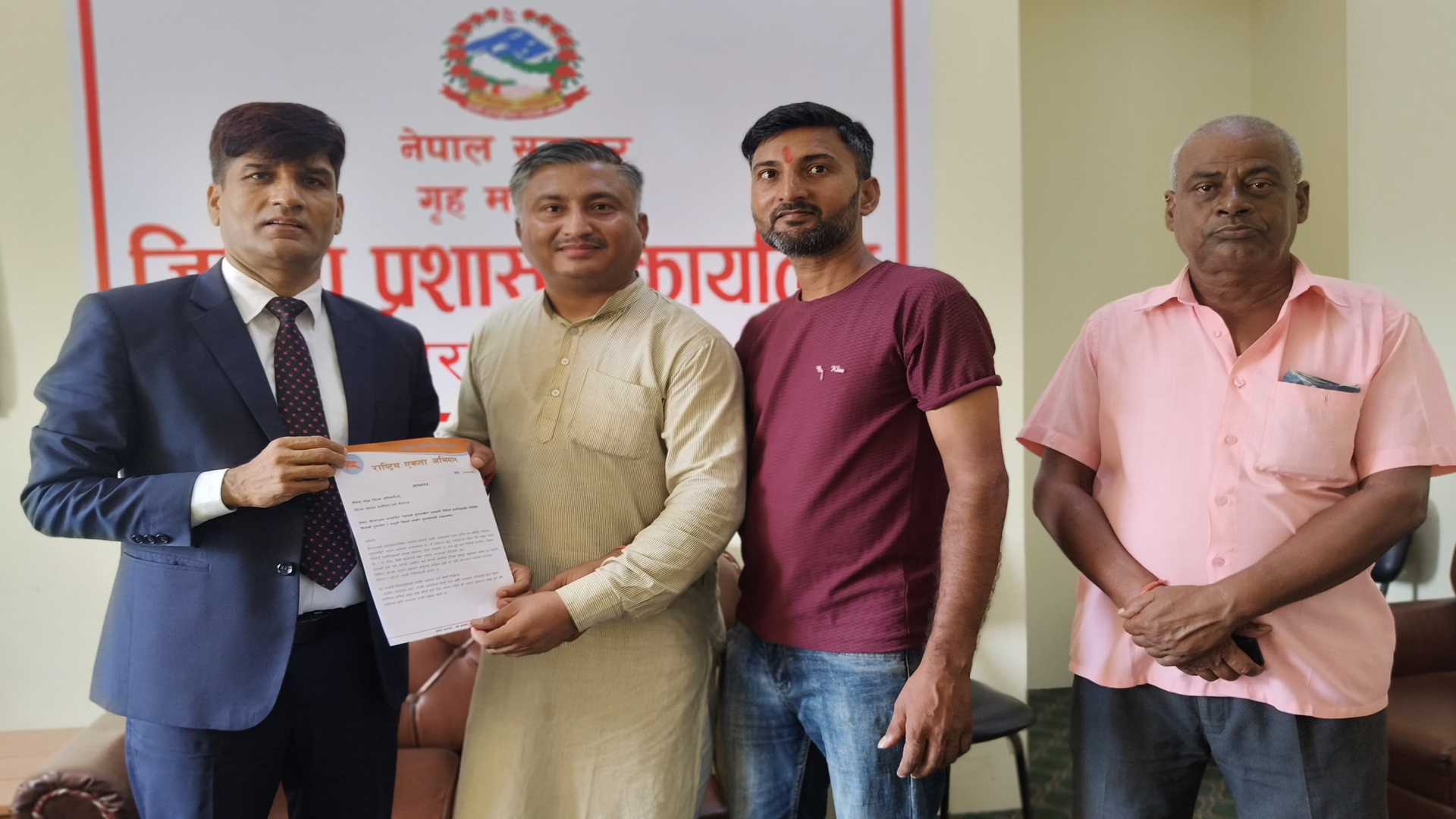Tourist Visa, Chinese Business! Treason in Birgunj

A storm is brewing in the bustling border city of Birgunj after allegations surfaced that Chinese nationals are directly operating a supermarket under a Nepali proxy, exploiting loopholes in visa regulations and raising serious questions about Nepal’s economic sovereignty and border security.
The supermarket in question, Ren Ren Le Supermarket, located in the Adarshnagar area, is reportedly being managed on the ground by two Chinese nationals-Jiang Li and En Ming-who are accused of conducting direct sales at the counter despite holding non-business visas. Although the ownership is officially registered under a Nepali citizen, Tilak Bahadur Khadka, local watchdogs allege that the investment, operational control, and profits belong entirely to the Chinese nationals, potentially in violation of Nepal’s laws governing foreign direct investment and visa conditions.
These revelations came to light after Rastriya Ekata Abhiyan (National Unity Campaign), a civil society group focused on national integrity and public accountability, submitted a formal memorandum to the Chief District Officer (CDO) of Parsa District demanding an immediate investigation. The campaign’s president, Binay Yadav, stated in the document that this is not an isolated incident, but part of a disturbing trend of foreign nationals exploiting Nepal’s lax regulatory enforcement and porous borders.
The memorandum categorizes the issue as a four-fold threat: economic displacement of local businesses, illegal operation under tourist visas, misuse of Nepali citizens’ names to mask foreign ownership, and a broader risk to national security given Birgunj’s proximity to the Indian border. Yadav expressed concern that while local entrepreneurs are struggling with rising rent and market saturation, foreign-backed operations are thriving—undermining domestic competitiveness and legal integrity.
“What we are witnessing is the erosion of Nepali agency in its own economy,” Yadav told reporters after handing over the memorandum. “Our laws are being bypassed, our borders are vulnerable, and our markets are being manipulated. This must stop.”
The campaign is demanding four urgent actions: verification of the Chinese nationals’ visa and legal status, identification and disclosure of the business's actual beneficial owners, suspension or revocation of the business license if violations are confirmed, and the establishment of a stricter regulatory and surveillance mechanism for foreign activities in border regions.
While district authorities have not yet issued an official response, sources within the administration confirmed that preliminary inquiries are underway. Meanwhile, the Department of Immigration has also been informally alerted about the alleged visa misuse, and legal experts argue that the case could set a precedent for stronger enforcement if pursued transparently.
The local business community, already grappling with post-pandemic recovery and growing competition, has expressed deep frustration over what they see as preferential treatment for foreign investors operating through loopholes. “We pay our taxes, we follow the rules, and still we lose customers to operations backed by foreign capital but shielded by Nepali names,” said Devaki Agarwal, a Birgunj-based retailer whose own premises now house the disputed supermarket.
The incident has sparked broader concerns about the increasing footprint of foreign economic actors in Nepal’s trade hubs, particularly along the India-Nepal border where oversight is minimal and local governance often struggles to keep pace with complex transnational dealings. The calls for reform are growing louder—not just from activists, but from citizens who feel the ground slipping beneath their feet.
As the case unfolds, many are now watching whether Nepal’s institutions will act decisively or allow another example of weak enforcement to fade into silence. In a city that stands at the crossroads of commerce and geopolitics, the question lingers: who truly controls the future of Nepal’s markets—and at what cost?




![From Kathmandu to the World: How Excel Students Are Winning Big [Admission Open]](https://nepalaaja.com/img/70194/medium/excel-college-info-eng-nep-2342.jpg)
